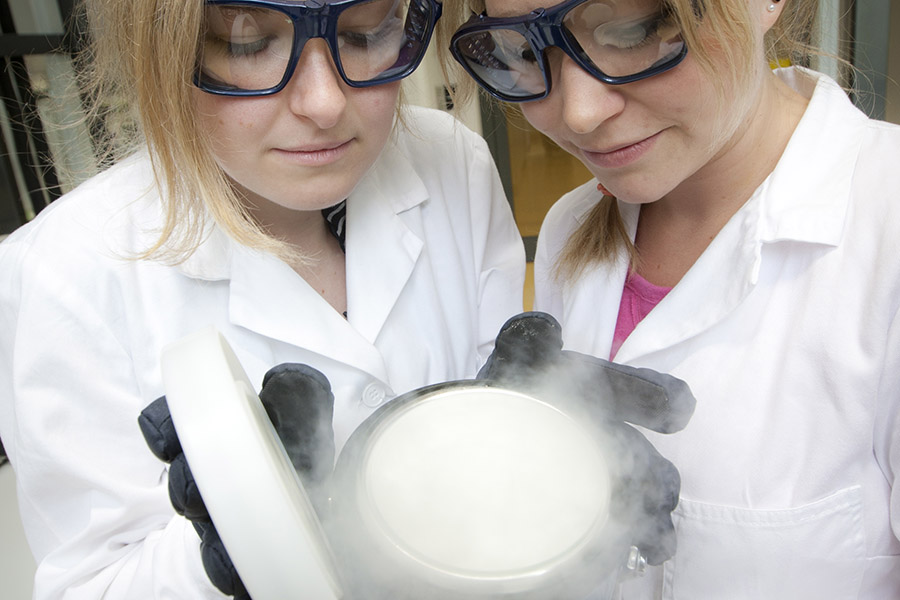Weltweit sind rund 1,9 Milliarden Menschen übergewichtig. 75 Prozent darunter leiden unter einer nicht-alkoholischen Fettleber, 400 Millionen haben Typ-II-Diabetes. Verursacht werden die Erkrankungen durch einen erhöhten Fettsäurespiegel im Blut. Der Wirkstoff Atglistatin kann diesen nachweislich reduzieren, wie eine Grazer Forschungsgruppe der Universität Graz und TU Graz kürzlich herausgefunden hat. Die WissenschafterInnen Univ.-Prof. Dr. Rudolf Zechner, Assoz.-Prof. Dr. Robert Zimmermann, beide Uni Graz, und Univ.-Prof. Dr. Rolf Breinbauer von der TU Graz konnten Atglistatin synthetisch herstellen. Ihre Ergebnisse publizierten sie dazu im März 2017 im renommierten Fachmagazin Nature Communications. Sie gehen seit Jahren der Entstehung von stoffwechselbedingten Erkrankungen, die mit Adipositas in Verbindung gebracht werden, auf den Grund.
Nun hat es diese Grundlagenforschung geschafft, fit für den Markt zu werden: An der Uni Graz und TU Graz entsteht unter dem Namen „Preclinical development of small molecule inhibitors targeting human adipose triglyceride lipase“ in den kommenden zwei Jahren ein Spin-off-Unternehmen. Im Rahmen dessen soll der Wirkstoff Atglistatin für den humanen Einsatz weiterentwickelt und zum Patent gebracht werden. Ziel ist es letztendlich ein wirksames Medikament für Erkrankungen wie Fettleber oder Diabetes Typ II auf den Markt zu bringen. Das Spin-off wird als „Research Studio“ von der Österreichischen Forschungsgesellschaft FFG mit insgesamt 1,2 Millionen Euro gefördert. Research Studios sind Forschungseinheiten, die in Österreich an Institutionen, wie etwa Hochschulen, angedockt sind. In diesem Jahr wurden elf genehmigt, 46 wurden beantragt. Starten soll das Grazer Research Studio zur Erforschung von Stoffwechselerkrankungen am 1. Mai 2017.
Diese Spin-off-Gründung ist nicht nur ein weiteres Beispiel für die erfolgreiche Kooperation NAWI Graz zwischen der Karl-Franzens-Universität Graz und der TU Graz in den Naturwissenschaften, sondern zeigt, wie universitäre Grundlagenforschung in ein Hightech-Unternehmen münden kann.
Weitere Information zur Publikation unter https://on.uni-graz.at/de/detail/article/schutz-schalter/
Wednesday, 26 April 2017
